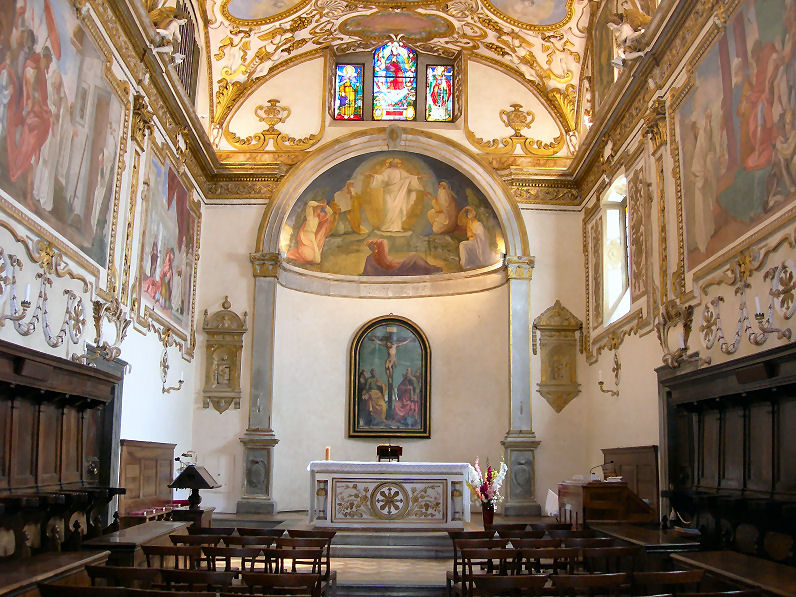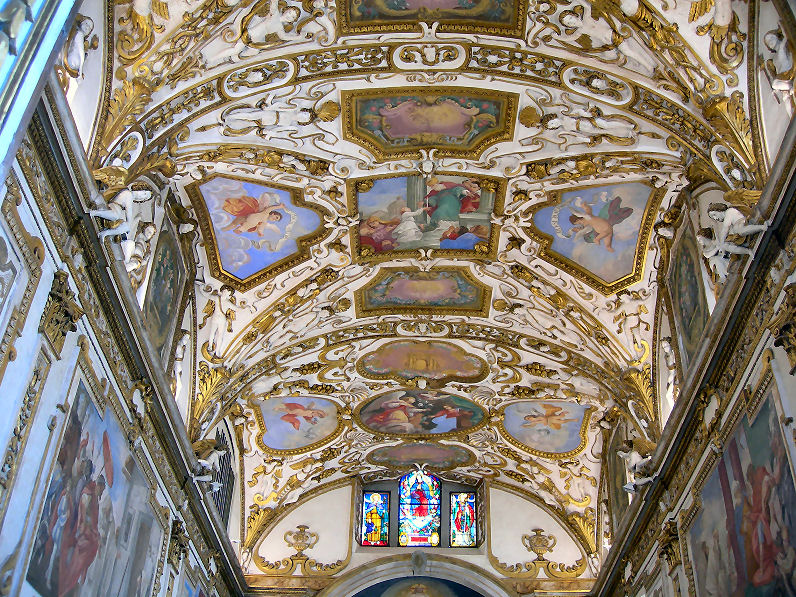http://www.monasterodicamaldoli.it/
St Romuald June 19.
.jpg) |
| Portrait St. Romuald (FaceBook) |
Christ
is a gentle leader, but he calls us to total holiness. Now and then men and
women are raised up to challenge us by the absoluteness of their dedication,
the vigour of their spirit, the depths of their conversion. The fact that we
cannot duplicate their lives does not change the call to us to be totally open
to God in our own particular circumstances. St Romuald was such a person. He
became an important figure among those eleventhcentury monks who sought to
reform contemporary monasticism in the direction of greater solitude. The
semi-eremitical monastery at Camaldoli became, after his death, the head
of
an organized group of houses; these hermit monks sti II exist as a small
independent order of Benedictines. St Romuald died in 1027.
A Reading from Thomas Merton.
One of the most venerable and ancient shoots
of the primitive Benedictine stock is the Order of Camaldoli. This Order
explicitly takes upon itself the task of providing a refuge for the pure
contemplative life, in solitude. Born of the intense revival of monastic
fervour that swept Europe in the tenth and eleventh centuries, Camaldoli was
founded in a high valley of the Apennines, beyond Arezzo, by St Romuald in
1012. Entirely unique in Western monasticism of the present day, the Camaldoli
hermitage presents the aspect of an ancient laura-a village of detached
cells, clustered around the church. Unlike the typical Charterhouse, whose
cells are all next to one another and open out 0!l a common cloister, Camaldoli
jealousy insists on the fact that the cells must be separate from one another
at least by a distance of twenty or thirty feet. The hermits live, read, work, eat,
sleep and meditate in their cells, but gather for the canonical hours in the
church. Silence and solitude, essential to the true life of contemplation, are
here not a question of "spirit" and of "ideal" but also
belong to the letter of the rule. For Camaldoli, like the Chartreuse, realizes
that "interior silence" and "interior solitude" do not
suffice, by themselves, to guarantee a purely contemplative life. Interior silence
may well be the refuge of the monk engaged in a more or less active life, who
seeks God in moments of recollection. But the best way to foster interior
silence is to preserve exterior silence, and the best way to have interior solitude
is not to be alone in a crowd but to be simply and purely alone. The purpose of
this solitude is to enable the monk to l ive alone with God in an atmosphere
which is most propitious for deep interior prayer. Corporate and liturgical
prayer are important in the life of the Church and of the monk but they do not
of themselves satisfy the deep need for intimate contact with God in solitary
prayer, a need which constitutes the peculiar vocation of the contemplative
soul. Liturgical prayer remotely disposes for the grace of contemplation. And
this gift
of God, like all his other gifts, is granted
to souls as an outpouring of the infinite riches he gives us, in Christ, and in
the Mass. But the true fruition of this special gift is not usually possible
unless our Eucharistic Communion is somehow prolonged in silent adoration. The
hermit's whole life is a life of silent adoration.
_________________________
Adapted from Saint of the Day by Leonard Foley, OFM, 197L~, p l39;. Penguin Dictionary of the Saints by D. Attwater; – The Silent
Life by T. Merton (B & O, London, 1957) pp112-3.
http://www.abbazie.com/camaldoli/visita_it.html
 |
The Hermitage
What to see in the hermitage? Surely the old cell of St. Romuald, now incorporated in the building of the library.
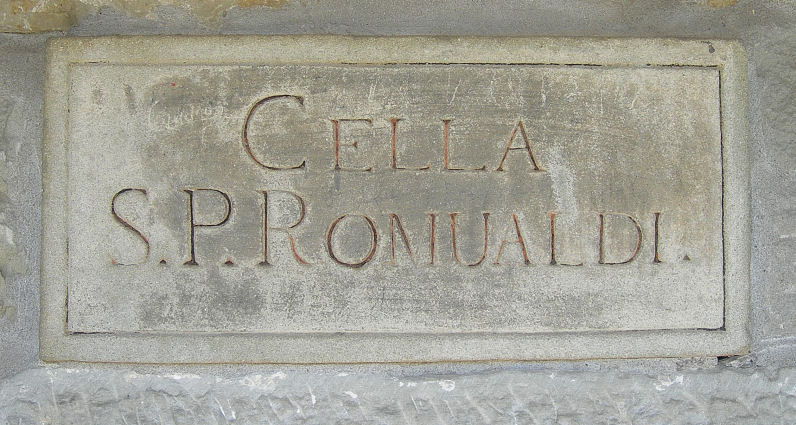
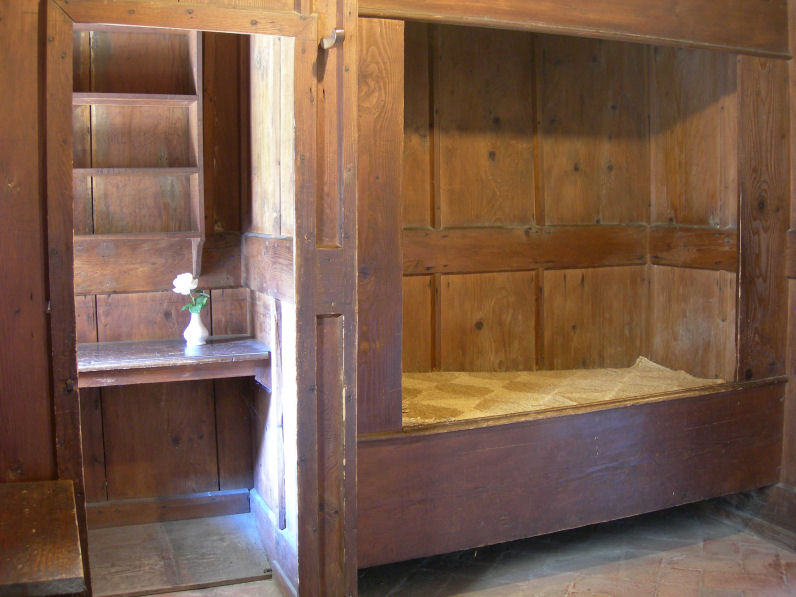
In the oratory of the hermitage you can see the altarpiece "Madonna and Child with Saints", a masterpiece in terracotta by Andrea della Robbia.
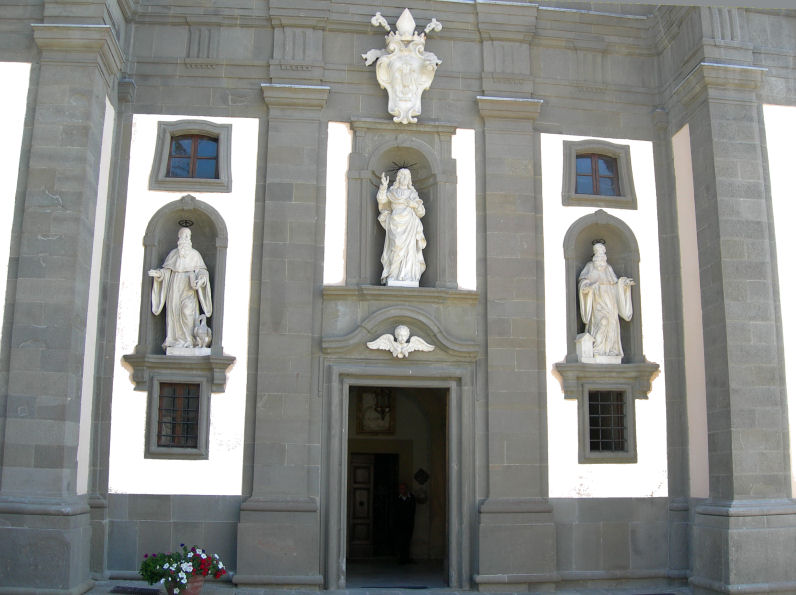
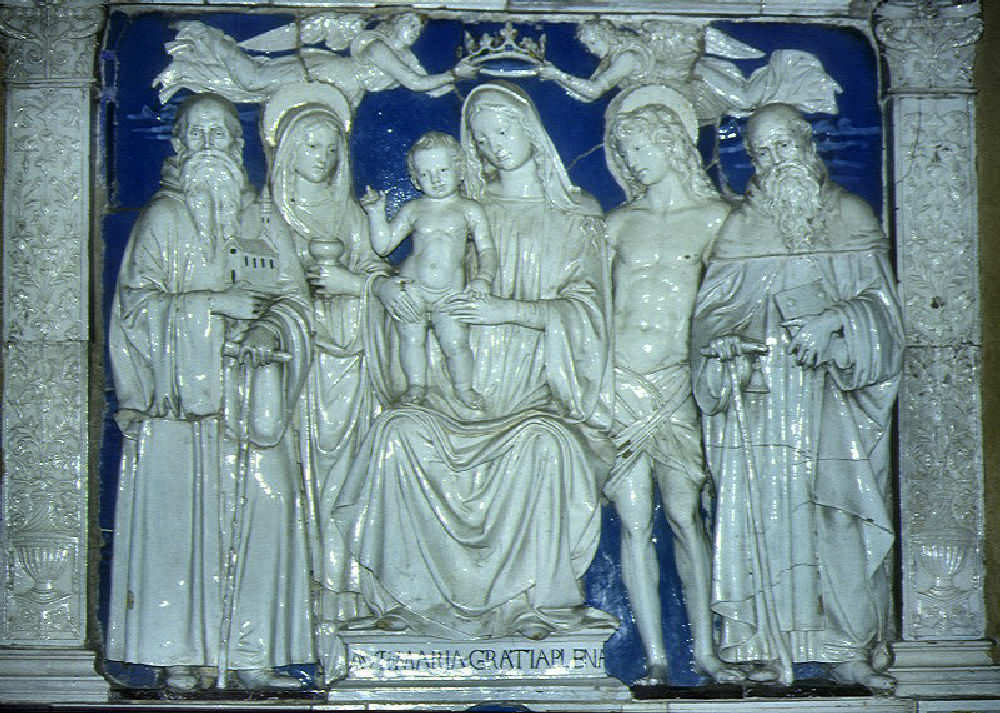
Fascinating is totally frescoed the vault.
